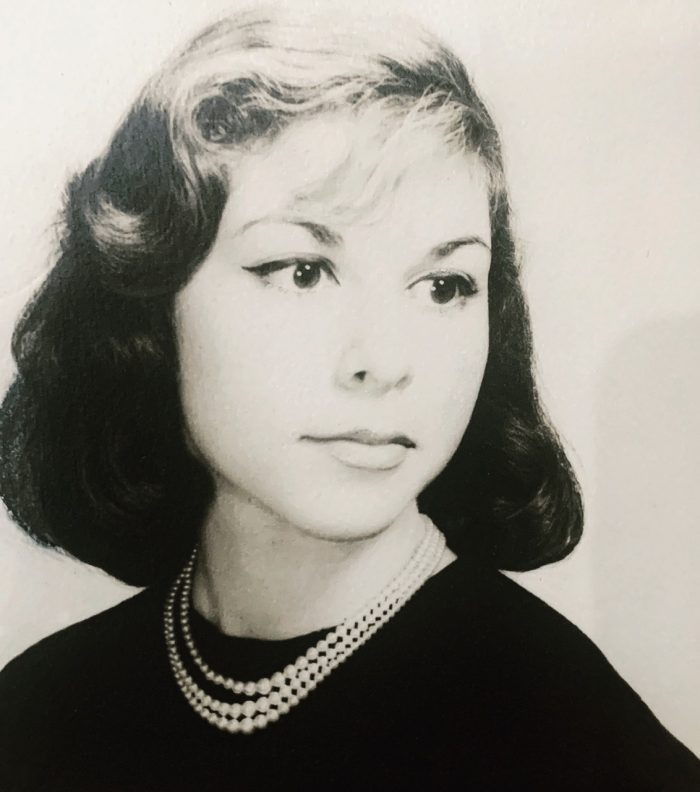Read: Elephant’s Continually-updating Coronavirus Diary. ~ Waylon
~
My mother’s eyes were always large, but they were abnormally enormous in the magnifying mirror she used when applying her makeup.
She had become accustomed to having me curl up by her feet to watch the magic happen every morning.
I was mesmerized by the perfect black line she drew to outline her eyelids. This was her signature look—stealth yet demure. She drew her lines each day for the entirety of her life. But one 1970s morning, while I lay on the reddish shag carpet waiting to witness my mother’s make up routine, she wasn’t able to apply her eyeliner. Her eyes were filled with tears.
My mother rarely cried. Actually, I’d say she was mostly cry-averse. I popped up from the ground in shock at the sight of her tears. She went on to tell me through her sorrow that it had been Billy’s birthday that day—her first child, born with renal disease and physical deformities.
She recanted the 10 months she had carried him in her belly, and the following 9 months that she sat beside him in both the NICU and a specialty hospital. My mother shared with me the prayers she spoke each day while she sat morning to night beside her baby. She prayed to be able to hold him in her arms one day, and to bring him home with her soon.
On that morning, at the vanity mirror, my mom grieved not just for her unanswered prayers, but for the 20,000 babies born in 1964 with congenital rubella syndrome. She wept for the 11,000 pregnant women who lost their babies, and the 2,100 newborns that died during the German measles outbreak.
The infection was widespread in the United States from 1964 to 1965. Whilst most people had a mild reaction and a tell-tale rash, only pregnant women were adversely affected. Still, the ripple effects from the rubella outbreak and the toll on fetuses and newborns were felt by many. Family members, health care providers, and the many women who had hoped to conceive that year were all impacted.
My mother went on to have healthy pregnancies, and the birth of my older sister brought her much joy and healing. However, her trust for her fellow man and woman was never quite restored.
She wished there had been protective measures in place for expectant mothers. Like many of the mothers afflicted before the rubella vaccine was created, she felt overlooked and disregarded.
There are many lessons for our current crisis to be learned from the German measles outbreak. I write them from my mother’s eyes. She is no longer here with me, but I still remember her undone, tear-filled eyes and what they shared.
My mother’s eyes tell me a vaccine will become a reality and therapeutics will become available.
They stress the importance of how we will respond in the space between now and then—this is where we will learn the most about ourselves, individually and collectively.
Her eyes softly prepare for the suffering and the many cherished souls we will lose, both young and old.
Hopefully, in spite of our despair, we can become gentler to one another and more conscious of those who are struggling the most. Hopefully, we can lower the voices of division and listen to those who encourage unity and camaraderie.
We have the opportunity now to create a more selfless, harmonious culture.
My mother’s eyes inspire me to hug longer and tighter, to dance with no filter, to cry with no shame, to share from my heart, and listen deeply. My mother’s eyes inspire me to pray for peace, create meaningful and soulful connections, count my blessings everyday, and lastly, to spread my love freely and wildly, and yet respectfully from a distance at this time.







Read 1 comment and reply